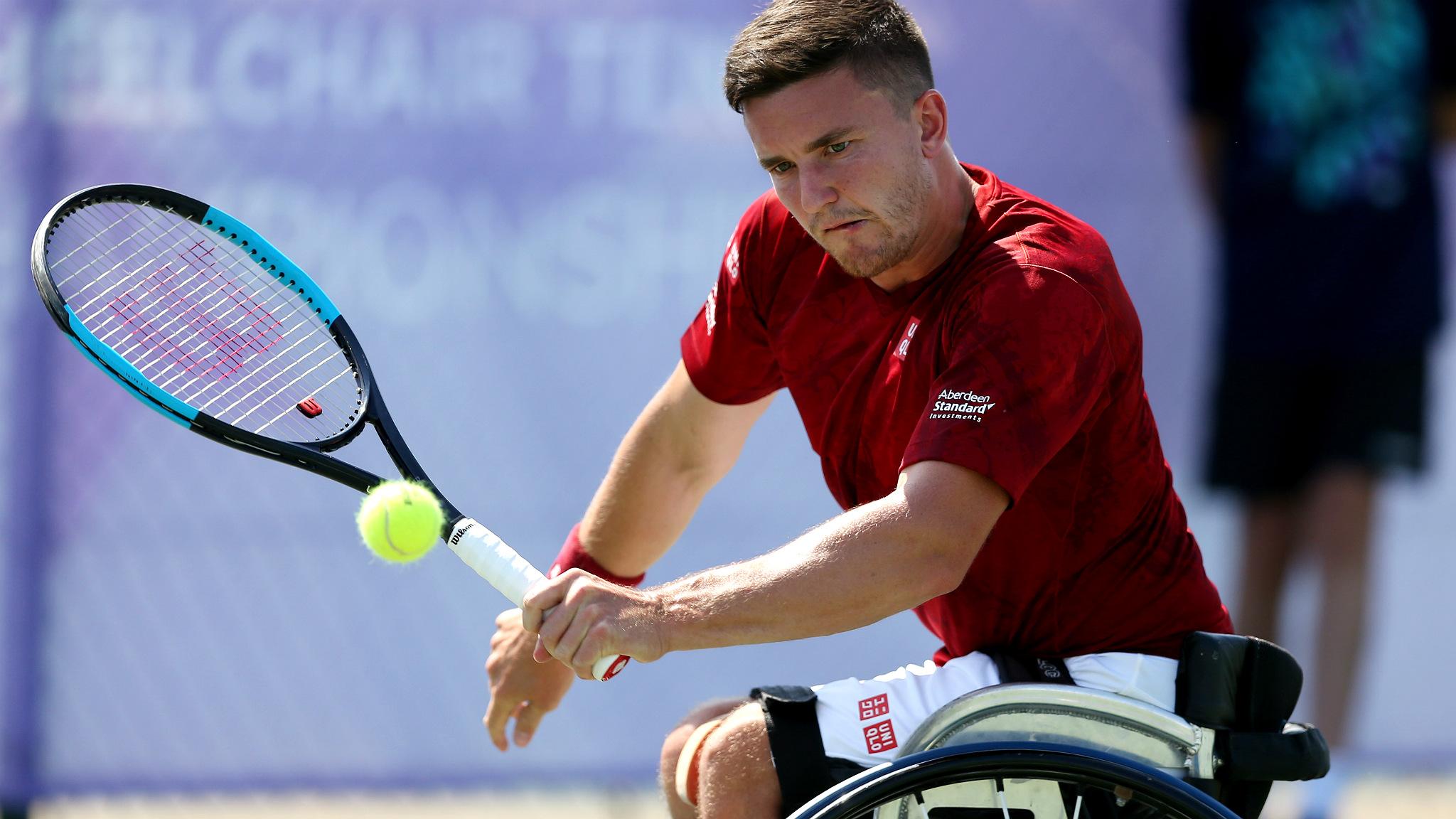Novak Djokovic had 'physical crisis' in Australian Open final win
- Published
Novak Djokovic said it was his willpower that pulled him through a "physical crisis" during his Australian Open final victory over Andy Murray.
The world number one, 27, beat the Briton 7-6 (7-5) 6-7 (4-7) 6-3 6-0 in three hours and 39 minutes.
Djokovic said the first two sets, which took two hours and 32 minutes to complete, had made him weak.
"You can't always be 100%, so you go through moments you can call crises during matches like these," he said.
Australian Open: Novak Djokovic 'honoured' to win in Melbourne
Murray was leading 2-0 in the third set, having fought back to level the match at 1-1, and the top seed appeared to be struggling before he overhauled the sixth seed's advantage to win 12 of the next 13 games.
"I wasn't cramping. I didn't call a timeout because I had no reason to call it. I was just weak. I went through the physical crisis in the matter of 20 minutes," explained the Serb, who won his fifth title at Melbourne Park.
Djokovic said his victory over Murray at the 2013 Australian Open final, where the players experienced an equally gruelling opening two sets, had helped him.
"I felt that I had some physical edge over him in that match," Djokovic said of the 2013 encounter. "That was in the back of my mind. That was something that kept me going.
"Even though I went through this moment, I believed that I'm going to get that necessary strength. I'm going to have to earn it, and that's what I did.
Most Australian Open titles | |
|---|---|
Roy Emerson | Six - 1961, 1963-67 |
Novak Djokovic | Five - 2008, 2011-13. 2015 |
Andre Agassi | Four - 1995, 2000-01, 2003 |
Jack Crawford | Four - 1931-33, 1935 |
Roger Federer | Four - 2004, 2006-07, 2010 |
Ken Rosewall | Four - 1953, 1955, 1971-72 |
"I started hitting the ball more, covering the court better, shortening the points, and allowed myself to come back to the match."
Murray has been criticised by former Wimbledon champion Pat Cash for having "melted down" in the latter stages of the match.
Djokovic, meanwhile, said having the mental edge in a Grand Slam final was important.
"In these particular matches and circumstances, mental strength probably plays the most important role," said the Serb, who has now won eight Grand Slams and a first as a father.
"It's not always possible to be 100% concentrated for three-and-a-half hours, but it's important to keep going because you fall many times, but mental strength allows you to keep going."
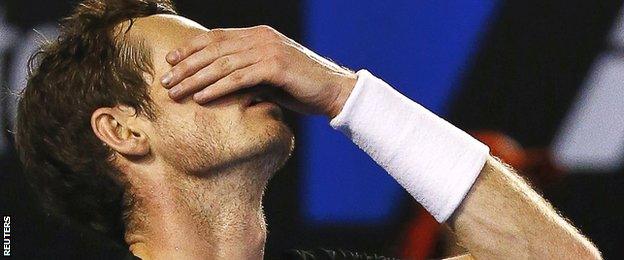
Andy Murray let a 2-0 lead slip in the third set, losing 12 of the last 13 games in the match
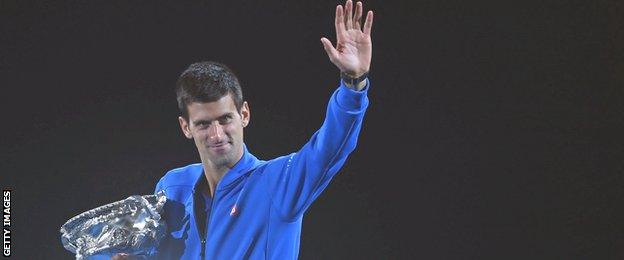
Novak Djokovic is only the second man to win five or more Australian Open titles
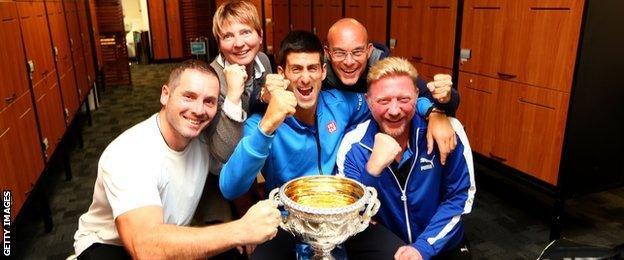
Djokovic has now won two Grand Slam titles since Boris Becker became his coach in December 2013
- Published1 February 2015
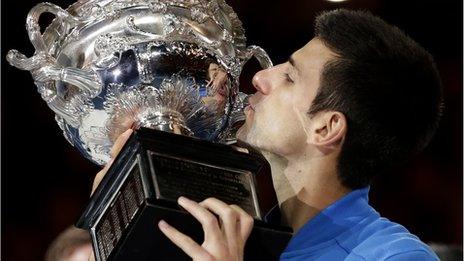
- Published1 February 2015
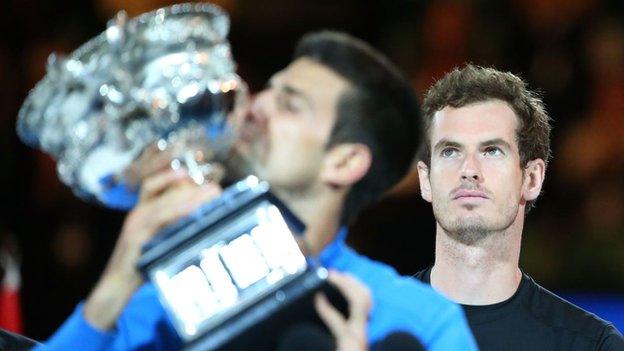
- Published1 February 2015
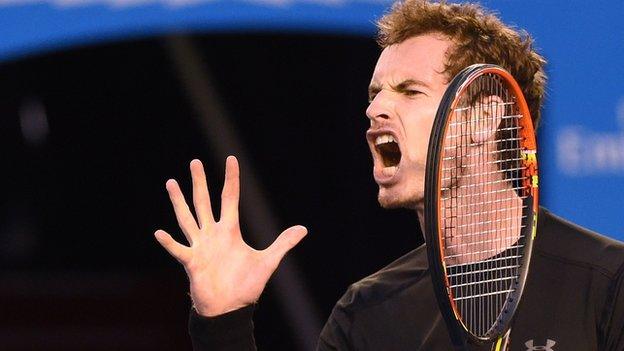
- Published29 January 2015
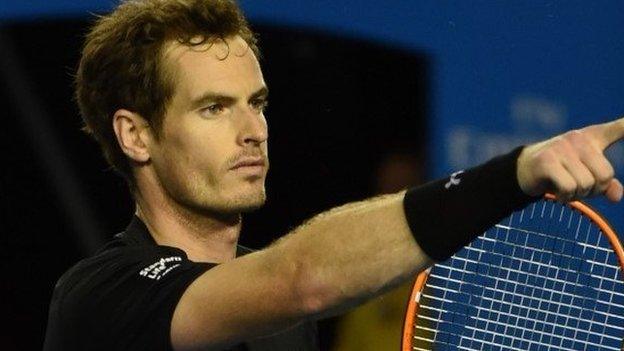
- Published31 January 2015
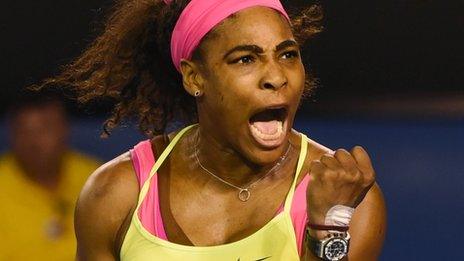
- Published31 January 2015
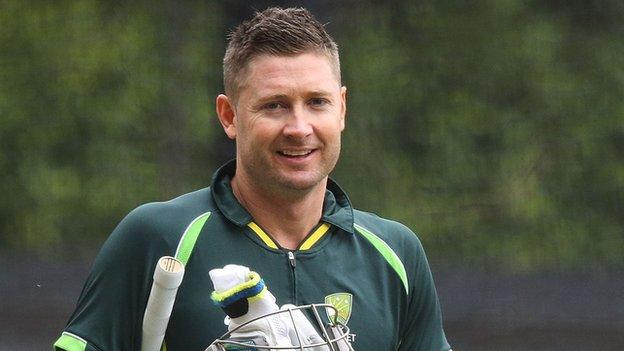
- Published30 January 2015
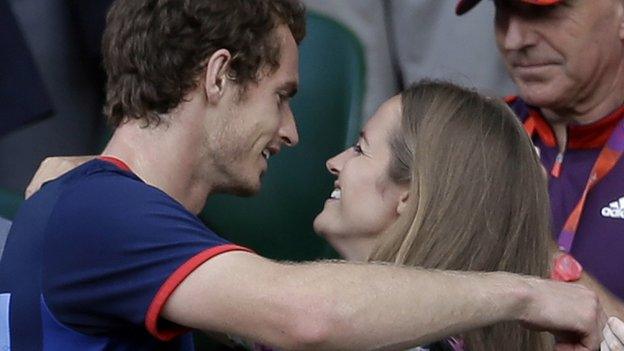
- Published31 January 2015
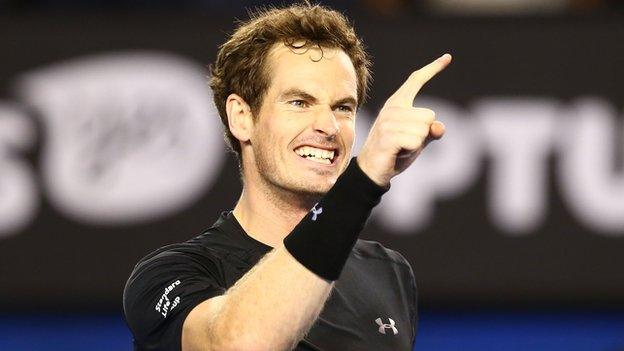
- Published29 January 2015
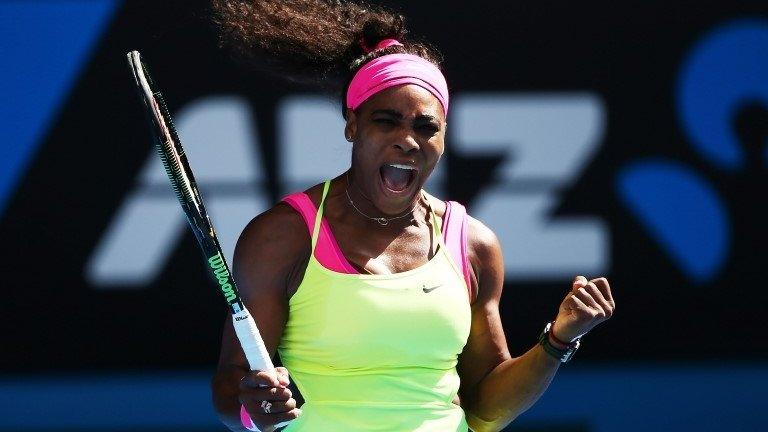
- Published9 November 2016
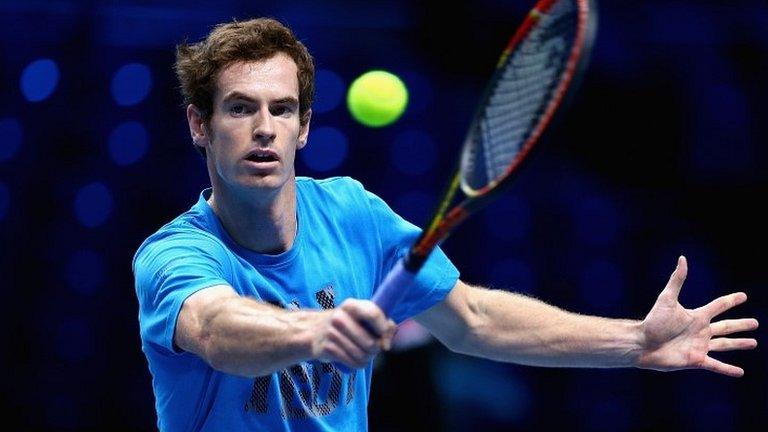
- Published30 May 2013
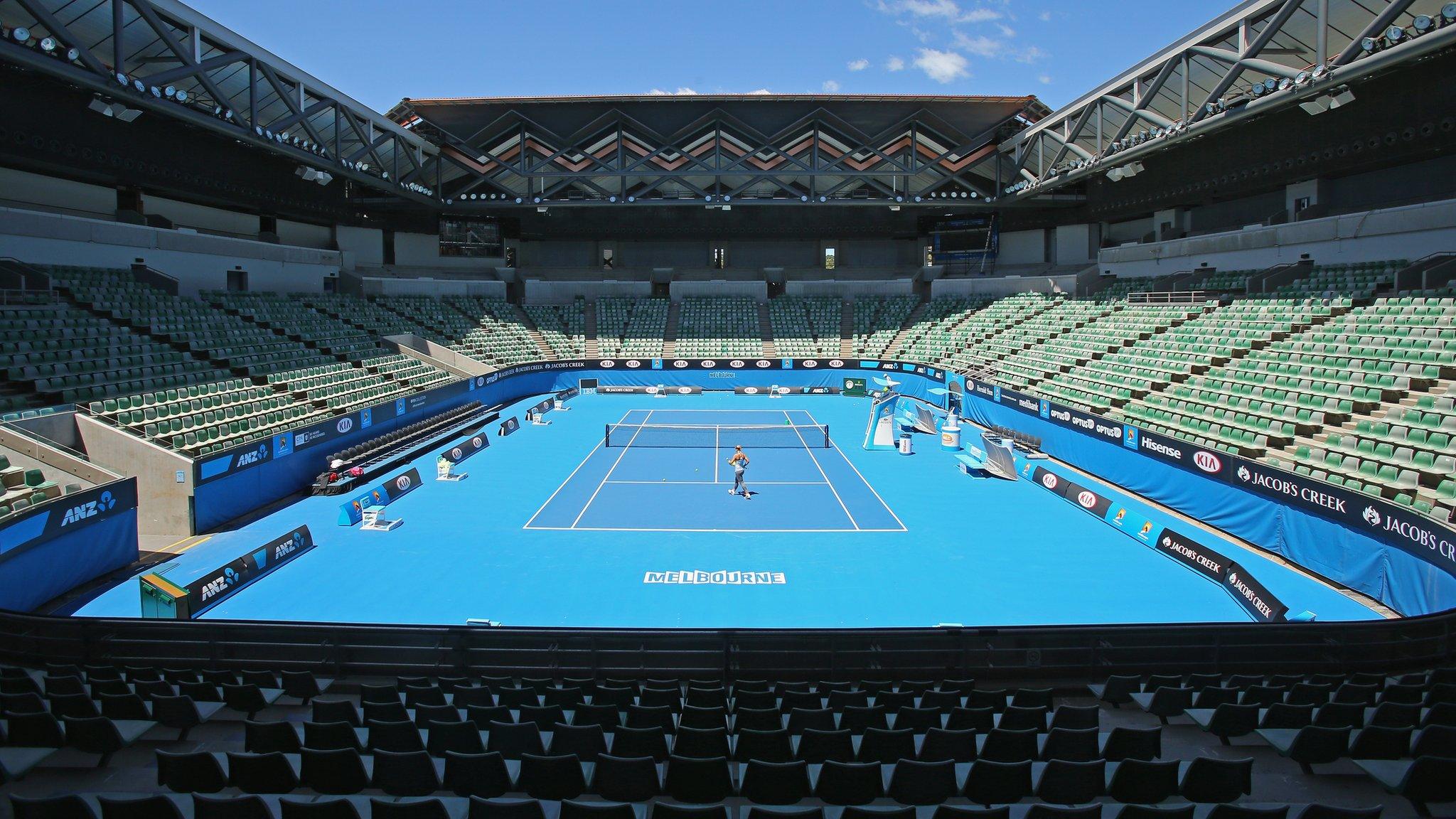
- Published8 November 2016
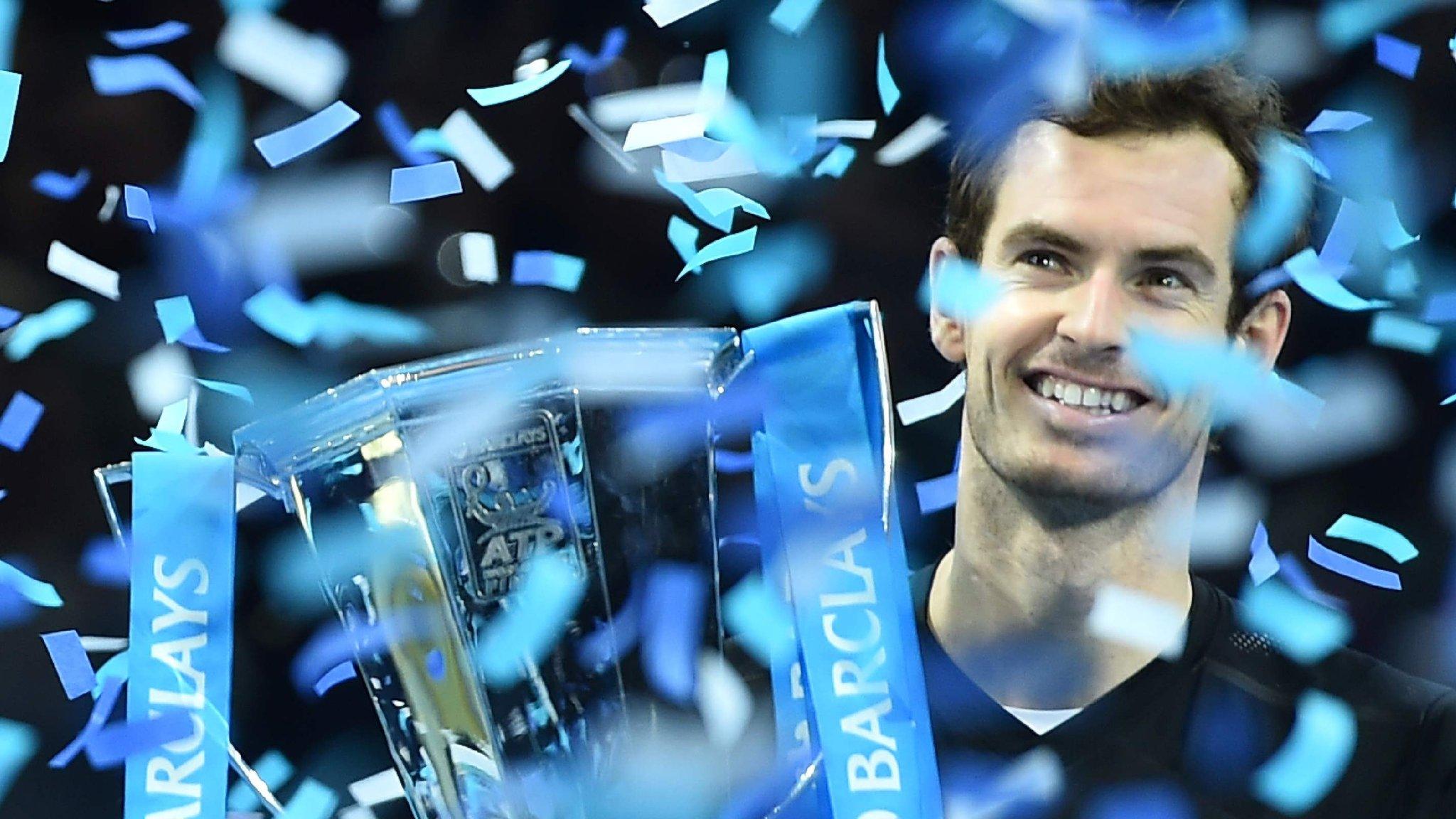
- Published17 June 2019
